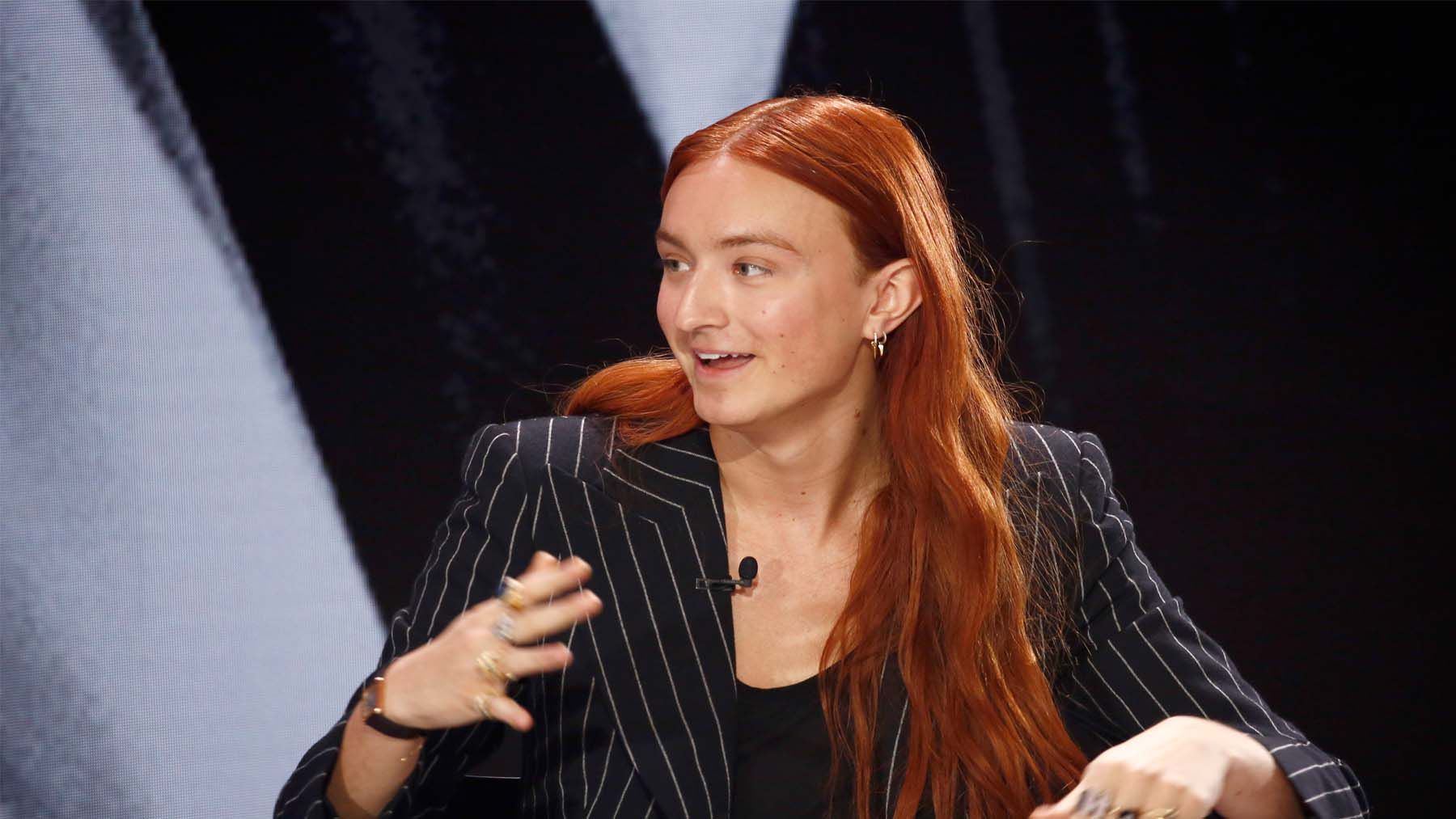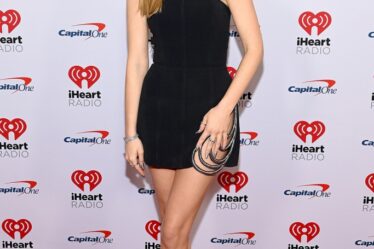
For all the attention and money fashion spends to appeal to Gen-Z — creating TikTok challenges, “sustainably-produced” collections and hopefully viral campaigns — executives are often still unsure of how to communicate with the next generation of consumers.
Edelman, the world’s largest PR firm by revenue, is launching a new team and service to help brands figure it out. Called the “Gen Z Lab,” it will include a roster of 100 Gen-Z Edelman employees as well as external “on-call advisors” plus a data hub all meant to produce Gen Z-related insights.
At the helm of the project will be 26-year-old designer Harris Reed, who Edelman named the lab’s “ZEO,” a play on the traditional CEO role where he’ll guide the direction of the Gen Z Lab as a consultant. Amanda Edelman, the 27-year-old daughter of Edelman CEO Richard Edelman, will be the Gen Z Lab’s COO and associate director. Edelman’s non-Gen-Z global chief brand officer, Jackie Cooper, will also lead the project.
Cooper said the idea to create a Gen-Z-specific insights team came after Edelman’s corporate clients and other marketing executives repeatedly asked questions about reaching Gen-Z consumers, ranging from how to leverage TikTok to how to shape influencer strategy.
“The common thread was a real apprehension about how to do Gen-Z right and therefore paralysis [around] … anything with Gen-Z,” Cooper said.
The team envisions that the Gen Z Lab will essentially offer Edelman clients a Gen-Z-centric focus group, as well as data informed by Edelman’s own Gen-Z employees. Functionally, the lab will advise on how to reach Gen-Z through their marketing campaigns and activations, as well as explain Gen-Z’s expectations around how companies should operate.
“This next generation is coming into themselves both with purchasing power as consumers, but also more broadly in positions of influence and power,” Amanda Edelman said. “Gen-Z is … able to have a voice both within our internal company of course, but also more broadly, bringing their values to clients and … the world.”
Trying to convince Gen-Z consumers that brands understand them has been a corporate aim for a few years now. Often, the big-name firms that guide them stumble, while smaller marketing firms and consultants, staffed and sometimes even owned by Gen-Z, are more adept in the space. The test for Edelman will be whether those on-call Gen-Z advisors, both within the firm and outside of it, will have real buy-in from the firm at large and its clients.
Building the Gen Z Lab
It’s not only Edelman that’s putting the resources behind understanding Gen-Z. On June 6, Berns Communication Group announced its own Gen-Z think tank, called The Z Suite, which includes students at universities across the US. The idea is that the students will work as “reverse mentors” with retail and brand executives and contribute to “perception studies to gain insights into Gen-Z’s shopping habits, values and priorities,” according to a statement.
Reed’s appointment acts as something of a differentiator for Edelman. The designer, who graduated from Central Saint Martins in 2020, began attracting press attention while still in school after his gender-fluid wares were seen on musicians like Harry Styles and in Vogue. Since graduating, he’s dressed Iman Abdulmajid for the Met Gala, collaborated with Dolce & Gabbana, Etro and jewellery brand Missoma and positioned himself as an LGBTQI advocate.
“I want to touch into everything a bit like Virgil Abloh,” Reed said. “There’s the resources [at Edelman] to do that … so it kind of is a little bit of a no-brainer,” Reed said of his decision to join the Gen Z Lab. There is no fixed term on Reed’s appointment as “ZEO.”
Cooper said that Edelman was drawn to Reed because of his ability to communicate what his generation expects from brands in the fashion industry and beyond.
“We have the resources, but maybe we don’t have the provocation in the same way or the kind of on board, day-in-day-out culture pulse that Harris is getting every day,” Cooper said.
Despite all the chatter about Gen-Z, they’re often misunderstood. In December, Edelman released a study of 9,600 Gen-Z consumers across six markets that revealed some of those misconceptions. Only 12 percent of respondents, for example, said they wanted to be an influencer. And while brands clamour for attention on TikTok, Gen-Z ranked YouTube as the most trusted platform, with TikTok in fifth place. (The findings of a new survey spanning 16 markets, will be released in July and presented at Cannes Lions later this month.)
By Reed’s account, there are plenty of other ways brands fail to understand Gen-Z. Conflating tokenism with inclusivity, particularly in marketing campaigns, is a common mistake Reed said he notices brands make. Cooper, meanwhile, noted that brands think attaching an influencer to a campaign will automatically give it credibility with Gen-Z.
“Mistakes are made in … taking an older advertising model with an older audience and thinking if you put a Gen-Z influencer in that, that’s going to work with the same aspirational product messages,” Cooper said. “Gen-Z does not want that; Gen-Z wants to know: Where’s the purpose? Where’s the meaning? Where’s the impact hand-in-hand then with experience?”
Joining Forces
Edelman may be positioning itself as an expert on reaching Gen-Z, but it’s had its own challenges in connecting with the generation itself, having previously attracted attention over its relationships with controversial clients. In November 2021, a grassroots campaign urged Edelman to drop ExxonMobil and other fossil fuel-producing clients from its business. Over 100 notable names, including designer Mara Hoffman and Brother Vellies founder Aurora James (who were not Edelman clients), signed a joint pledge calling on Edelman to sever ties with these companies. (For its part, Edelman announced in 2015 that it would no longer work with coal producers or climate change deniers, according to the Chicago Tribune.)
In response, Edelman released a statement outlining a list of actions it would take to address the activist pressure — without dropping ExxonMobil — which included a pledge to increase its investment in climate change expertise, establish an independent climate and sustainability committee at the board level and conduct a 60-day portfolio review, meaning it would shed the clients who failed to meet the firm’s expectations as they relate to communications around climate change.
An Edelman spokesperson told BoF, “we have incorporated climate principles into our client acceptance process, focusing on clients in emission-intensive industries. We have decided not to pursue certain new opportunities, discontinued work with some clients, and established ongoing follow-up and review of some assignments. We are unable to share specific information due to confidentiality agreements with our clients.”
Reed said brands have “gotten used to the quick band-aid,” referring to how companies will, for instance, launch campaigns during Pride Month to signal allegiance to the LGBTQ community without real action behind them.
“Actually, Gen-Z wants to see what’s behind the door with how you’re treating employees, and who are your employees?” he said.



